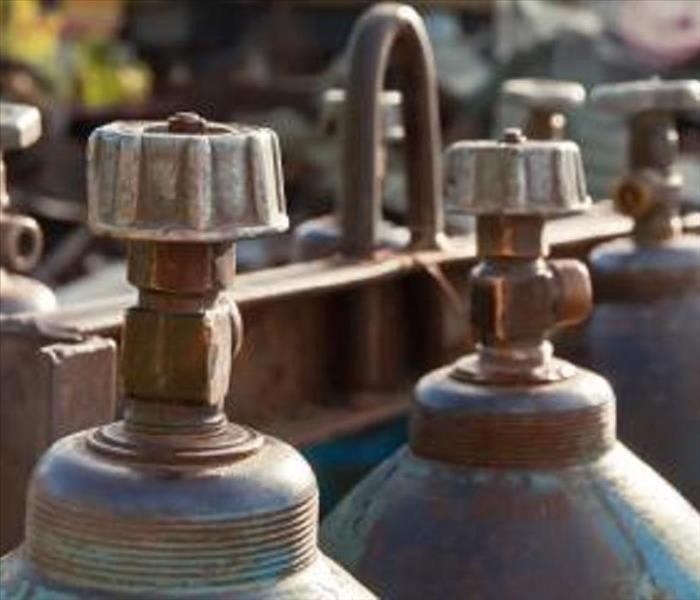4 FAQs on Flammable Gas Safety
3/27/2020 (Permalink)
Propane, hydrogen, butane, ethylene, and other flammable, compressed gases present hazards without the right precautions. While fire safety maintenance will help you avoid trouble, you should also understand how to handle and store gas cylinders. Here’s what to know to keep your facility safe.
Common Questions About Flammable Gases
Can I store containers outdoors?
Yes, as long as the manufacturer's instructions permit outdoor storage. Closely follow the guidelines on all cylinder labels. If a label is missing or damaged, you may need to call the manufacturer.
Cylinders stored outdoors must remain upright on compacted, level surfaces. These should be far away from drainage areas, manholes, or other openings. Use an open-sided enclosure with a weatherproof roof to protect the cylinders from sunlight, snow, and other elements.
What about indoor storage?
Fire safety maintenance. Indoor storage is also possible as long as you follow all ventilation guidelines outlined by the manufacturers. Store the gases in a separate building that has noncombustible structural components that resist fire for at least 120 minutes. The area should also have lightweight roofing and explosion vents.
Keep gases on the ground floor and place electrical wiring outside of the building to further limit the chances of fires and explosions.
What are the best materials for securing the cylinders?
Unrestrained cylinders could roll away or fall, so you must keep them secure. Use specialized chains, straps, and bungee cords. Refer to the label or manufacturer’s instructions for information on how to secure the units.
How should I handle the cylinders?
Inspect all items before handling. Do not handle any cylinder that has dents, severe corrosion, or other visible signs of damage. Avoid contact if you notice grease, oil, solvent, or dirt, which could cause explosions.
Open cylinder valves only with the manufacturer-provided key, and ensure you are working away from all heat sources. You must also have fire safety equipment within reach and follow all other manufacturer’s guidelines, such as opening specific valves if you’re working with an irritating gas.






 24/7 Emergency Service
24/7 Emergency Service
